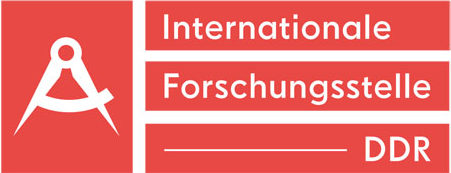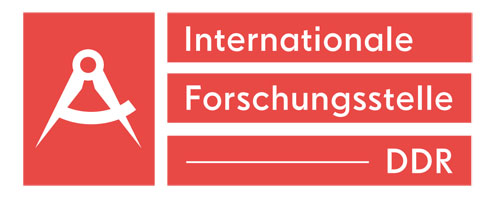NEWS
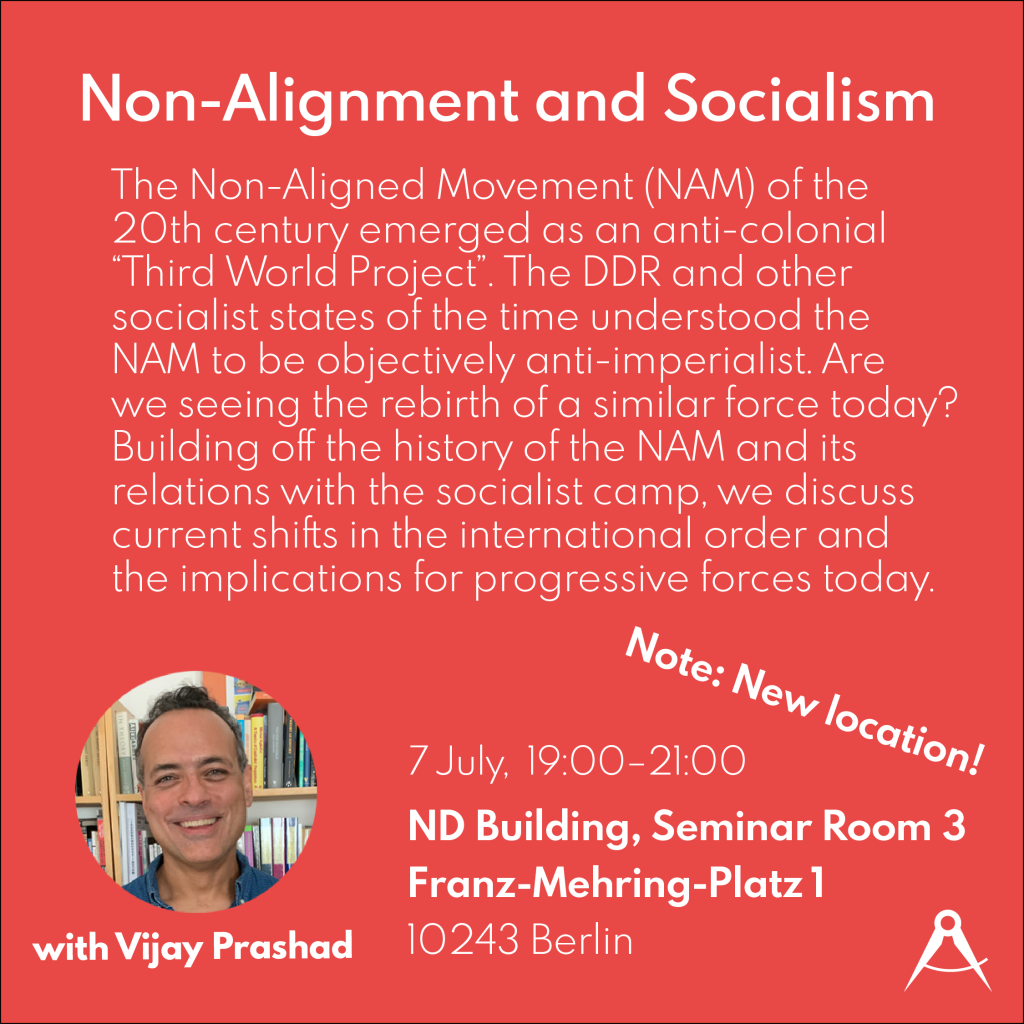
EVENT: Non-Alignment and Socialism
Today, many argue that a new Cold War has begun between the USA and China. Since February 2022, it also appears as if a new group of non-aligned states might be emerging. How do these developments compare to the Cold War and Non-Aligned Movement (NAM) of the 20th century? How did the socialist states’ approach to anti-imperialism and the NAM during the last century? On 7 July 2023 we will be discussing with Indian historian and communist Vijay Prashad how non-alignment and anti-imperialism relate to the struggle for socialism – both in the past and present.
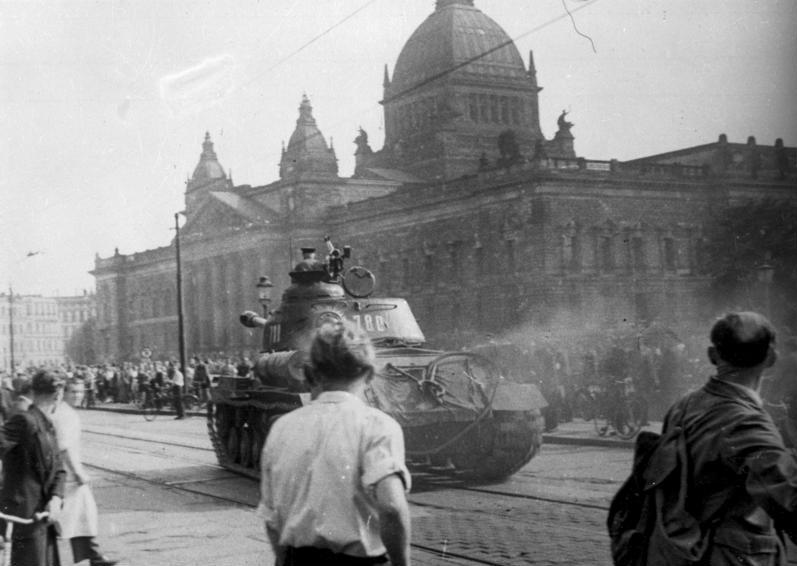
Dossier: What happened on 17 June 1953 in the GDR?
This year marks the 70th anniversary of the unrest during 17 June 1953 in the German Democratic Republic (“East Germany”). With this dossier of translated article excerpts, we want to shed light on significant aspects of the events and make them accessible to an international audience.

EVENT: WHY TALK ABOUT THE GDR?
We were invited by The People’s Forum in New York City to discuss the history of the German Democratic Republic (GDR) and its enduring relevance for progressive movements today. In the two-session seminar, we covered the historical context in which the GDR was founded, the character of its planned economy, the functioning of its socialist democracy, and the significance of proletarian internationalism.
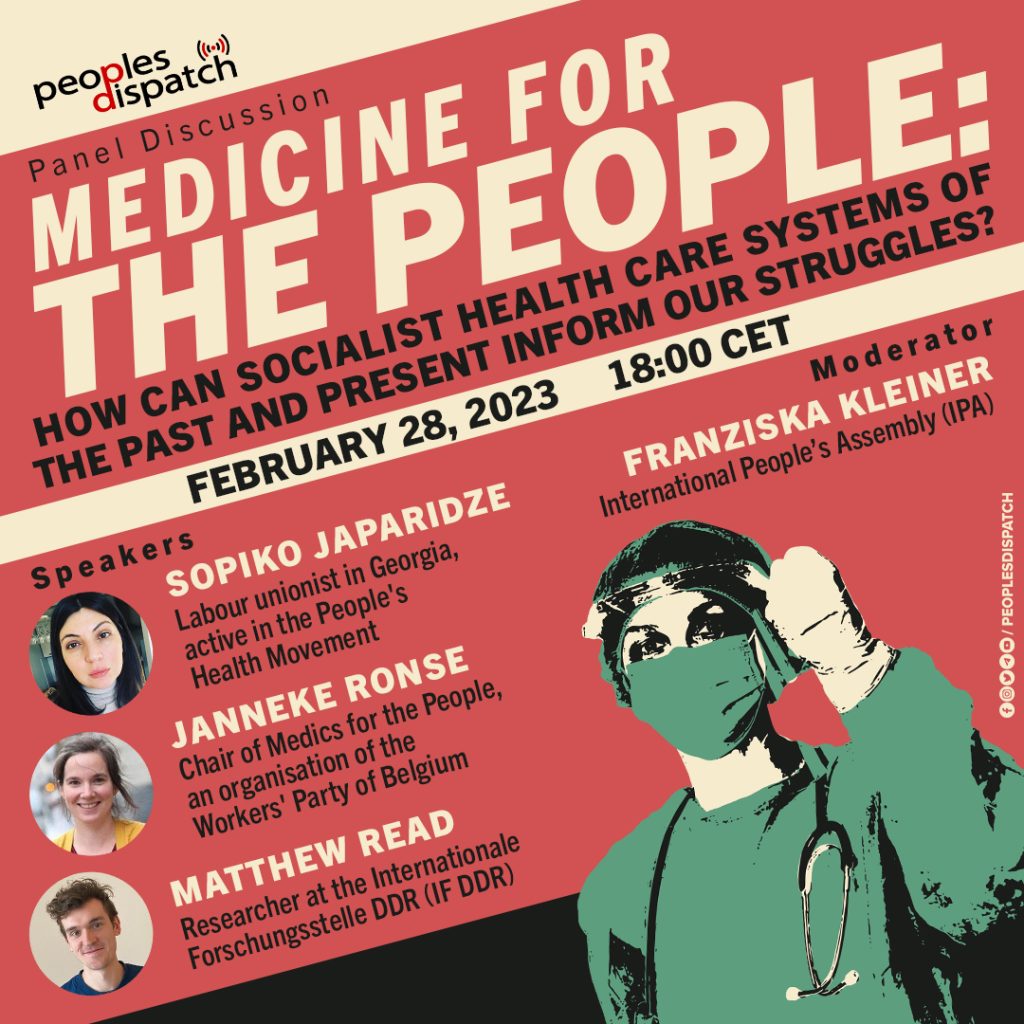
EVENT: MEDICINE FOR THE PEOPLE
What characterizes the socialist approach to health? We will explore experiences from the German Democratic Republic, the Georgian Soviet Republic, and modern-day Belgium to understand how socialist systems of the past and present have defied economic constraints and transformed health care to serve the needs of the people rather than profit.
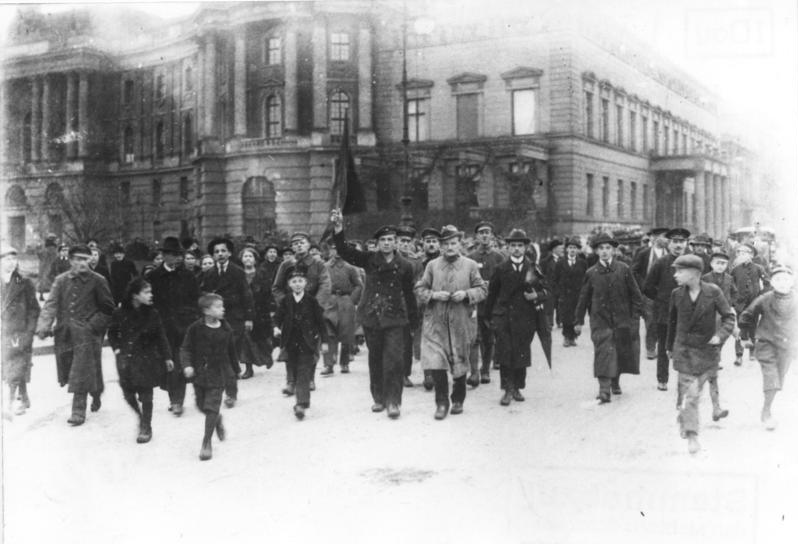
November 1918: The Unfinished Revolution
On 9 November 1918, the German Empire was toppled after mass uprisings brought the monarchy and First World War to an end. The achievements and limitations of the November Revolution greatly shaped the development of the German state in the fateful decades of the 1920s and 1930s. Analysing the historical lessons of the November Revolution has also been a crucial point of contention within the German workers’ movement, for it raises the question of the working class’s relation to state power.
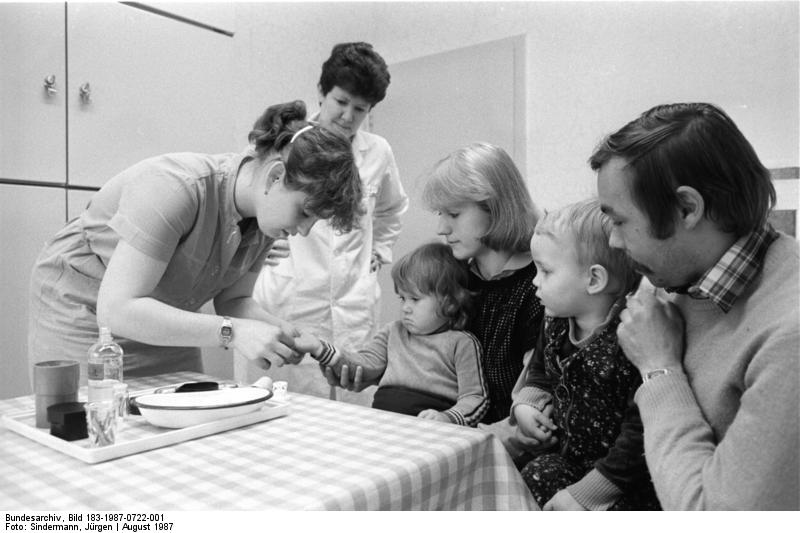
“A Back-Up for Nursing Care” – IF DDR ARTICLE
Professional ethics and health policy do not form a dichotomy. An article on working conditions in the GDR’s health care system.
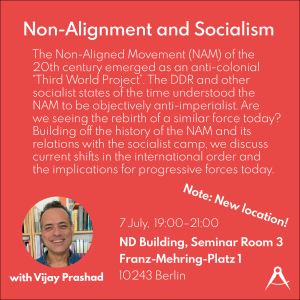
EVENT: Non-Alignment and Socialism
Today, many argue that a new Cold War has begun between the USA and China. Since February 2022, it also appears as if a new group of non-aligned states might be emerging. How do these developments compare to the Cold War and Non-Aligned Movement (NAM) of the 20th century? How did the socialist states’ approach to anti-imperialism and the NAM during the last century? On 7 July 2023 we will be discussing with Indian historian and communist Vijay Prashad how non-alignment and anti-imperialism relate to the struggle for socialism – both in the past and present.

Dossier: What happened on 17 June 1953 in the GDR?
This year marks the 70th anniversary of the unrest during 17 June 1953 in the German Democratic Republic (“East Germany”). With this dossier of translated article excerpts, we want to shed light on significant aspects of the events and make them accessible to an international audience.

EVENT: WHY TALK ABOUT THE GDR?
We were invited by The People’s Forum in New York City to discuss the history of the German Democratic Republic (GDR) and its enduring relevance for progressive movements today. In the two-session seminar, we covered the historical context in which the GDR was founded, the character of its planned economy, the functioning of its socialist democracy, and the significance of proletarian internationalism.
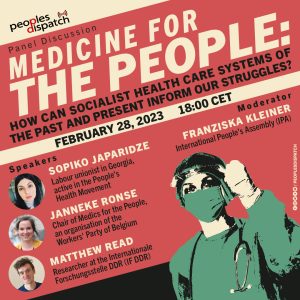
EVENT: MEDICINE FOR THE PEOPLE
What characterizes the socialist approach to health? We will explore experiences from the German Democratic Republic, the Georgian Soviet Republic, and modern-day Belgium to understand how socialist systems of the past and present have defied economic constraints and transformed health care to serve the needs of the people rather than profit.
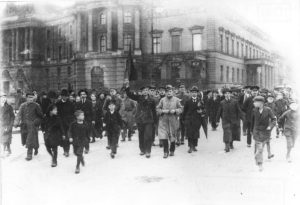
November 1918: The Unfinished Revolution
On 9 November 1918, the German Empire was toppled after mass uprisings brought the monarchy and First World War to an end. The achievements and limitations of the November Revolution greatly shaped the development of the German state in the fateful decades of the 1920s and 1930s. Analysing the historical lessons of the November Revolution has also been a crucial point of contention within the German workers’ movement, for it raises the question of the working class’s relation to state power.

“A Back-Up for Nursing Care” – IF DDR ARTICLE
Professional ethics and health policy do not form a dichotomy. An article on working conditions in the GDR’s health care system.
